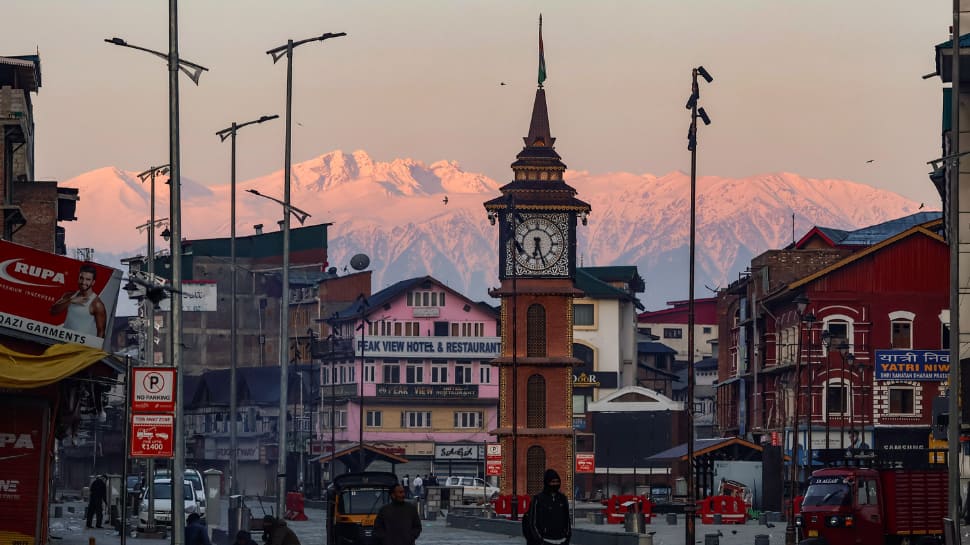"Agar firdaus bar roo-e zameen ast, Hameen ast-o hameen ast-o hameen ast" - If there is a paradise on earth, It is this, it is this, it is this. The famous couplet is written in the context of Jammu and Kashmir. The valley, which was once abode for film shooting, saw its downslide after the rise of terror attacks and suffered for decades. The Narendra Modi-led Union government abrogated Article 370 on August 5, 2019 and tried to overturn the fortune of the valley. Home Minister Amit Shah delivered the historical speech in the Lok Sabha, stripping Jammu and Kashmir of its special status and statehood and bifurcating it into two Union Territories: Jammu & Kashmir and Ladakh.
The Center promised a plethora of changes and developments will follow. As today marks the fifth year since the decision was taken, the security in the Akhnoor area of Jammu district has been beefed up to avoid any terror incidents as the threat of infiltration looms over. So, the burning question remains: Has the region truly progressed, or are we right back to where we started from?
Development: Confined To Paper
The promise of development and good governance seems to be a mixed bag. While the government touts the transformation of Jammu and Srinagar into "smart" cities, this progress appears largely superficial, confined to papers. On the ground, local businesses in Jammu struggle under economic stress, crime rates have surged, and the control of critical sectors like mining and liquor trade by 'outsiders' has sparked resentment.
Terrorism: Rise Or Decline?
The Ministry of Home Affairs (MHA) has reported a decrease in terrorist incidents in recent years. Nevertheless, over the past two months, Jammu and Kashmir has experienced a surge in terrorist attacks, resulting in casualties among both civilians and security personnel. Security remains a pressing concern in the region. The abolition was justified on the grounds of enhancing national security.
However, according to the South Asia Terrorism Portal, the first seven months of 2024 alone witnessed 32 incidents of killing in J&K, involving 17 civilians and 16 security personnel.
The recent revival of militancy in the Jammu region is alarming, with an uptick in deadly attacks this year. The reduction in stone-pelting incidents is overshadowed by the emergence of other forms of dissent, indicating that the underlying tensions remain unresolved.
Overreaching Bureaucracy
Public trust in government policies in Jammu and Kashmir has plummeted, driven by a combination of the absence of political representation, centralised power, and insufficient local engagement.
Instances of police highhandedness and bureaucratic overreach have sharply increased since the abrogation. While such issues existed before, the current scenario has only deepened the chasm of mistrust and resentment among the local population.
The influx of bureaucrats from outside the region in key administrative positions further alienates the locals, intensifying the feelings of disenfranchisement.
Tourism: The Silver Linning
Tourism has emerged as the lone bright spot; the number of tourists visiting J&K has soared dramatically, from 34,70,834 in 2020 to over 2,11,24,874 last year, with over a million visitors in the first half of 2024 alone.
This surge not only underscores the region's enduring appeal but also brings much-needed economic relief. However, tourism alone cannot be the sole measure of success in a region fraught with complex socio-political issues.
Is Voter Turnout a Good Sign?
The 2024 Lok Sabha Elections in Jammu and Kashmir were carried out with remarkable peace and efficiency, without any incidents of violence or loss of life. The region experienced a historic surge in voter turnout, unseen in decades.
However, the regional parties have contended that the substantial voter participation contradicts the decision made on August 5.
Five years after the abrogation of Article 370, Jammu and Kashmir presents a paradox of progress and stagnation. The lack of democratic representation, economic struggles, and persistent security threats. While the surge in tourism offers a glimmer of hope, it is insufficient to mask the underlying issues that continue to plague the region. The promise of a new dawn for Kashmir remains elusive, raising the critical question: Is Kashmir truly back to square one?
















